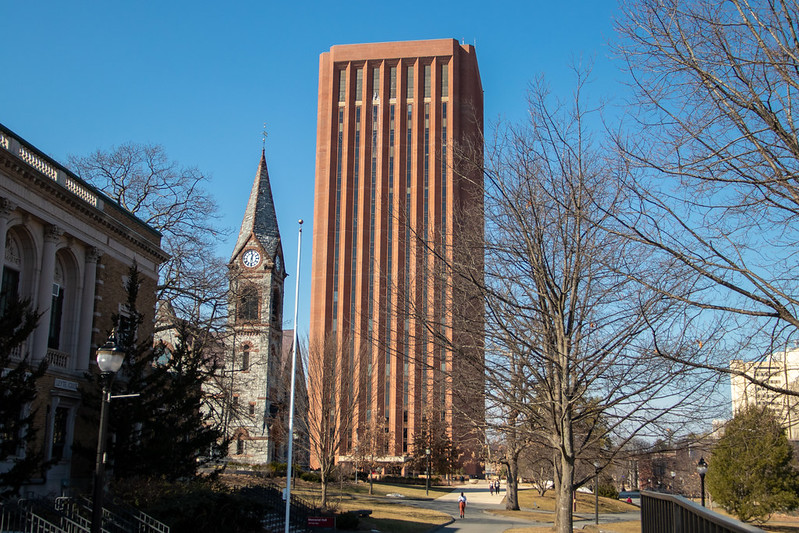Dr. Anthony Jack, sociologist and assistant professor of education at Harvard University, spoke at the University of Massachusetts Thursday on how elite colleges are failing disadvantaged students.
The event, titled “The Privileged Poor: How Elite Colleges Are Failing Disadvantaged Students,” examined how class and culture shape how undergraduates navigate college. Drawing on interviews from 103 undergraduates and two years of observing everyday life at elite universities, Jack examined the social and personal cost of exclusion that has large implications on students.
“Higher education is highly unequal and depressingly stratified,” Jack said. “Although first gen and lower income students make up roughly 50% of the students at four-year schools, just 14 percent of undergraduates at the most competitive colleges come from the bottom half of income distribution”
38 colleges in the country have more students in the richest 1 percent of the population than the bottom 60 percent, he notes.
In other words, Jack said, those schools have more students with families making more than $680,000 than making under $60,000.
Jack explained that while elite colleges praise themselves on their commitment to diversifying their schools, solely admitting students does not guarantee success or inclusion.
Many schools were applauded for efforts to make money “no longer a factor,” in admissions he said. But, he added, simply admitting students and providing financial aid was not enough.
“Access ain’t inclusion,” Jack said. “I worry if colleges sometimes have forgotten an old truth — that citizenship has so much more to do than just being in a place. It’s about being able to access all the rights and privileges pertaining thereto.”
Jack highlighted the unfortunate reality of the challenges that many poor, lower income students face while attending the wealthiest schools in the country. He shared the stories of students that did not have meals during spring break because of dining hall closures or had no place to go because their homes were not safe. Jack emphasized that universities must adequately prepare for the arrival of these students.
“New students require taking on new responsibilities,” he said. “We must move from access to inclusion.”
Ebru Kardan, UMass’ director of diversity communications, shared the significance of this event for the UMass community.
“This is important because our hope is that people that are watching this will learn something new and improve or change the way they interact with students in a way that might provide some more empathy and understanding,” she said, adding that this event could “in turn help students that are struggling by providing [them] with resources that they might not know about.”
Kardan also noted the necessary steps she believed could provide support for students in these situations at UMass.
“In the work we are doing to diversify the student body, we can’t just stop once we have folks from different diverse backgrounds on campus,” she said. “We have to continue having a highly personal relationship with them to make sure they succeed, graduate and prepare for what their next step is.
“If once students here they don’t feel like they are in a supportive environment, you haven’t really done your job.”
Lisa Gherbi can be reached at [email protected].



















